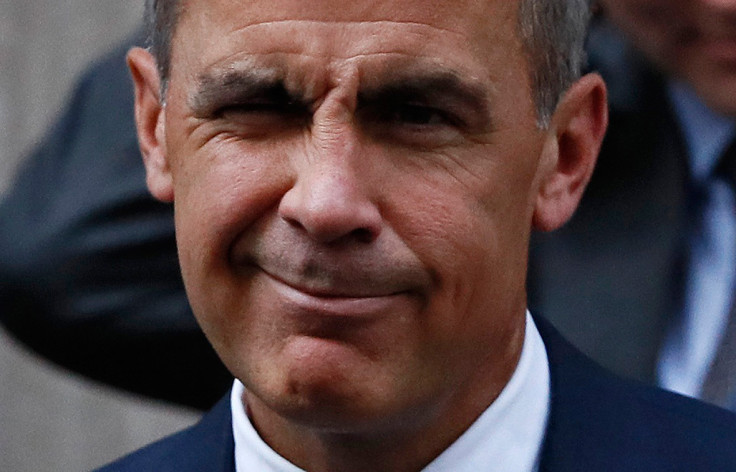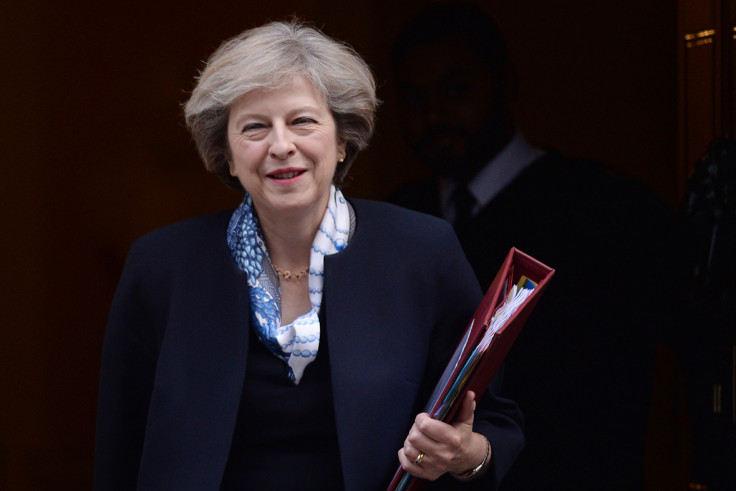Mark Carney set to extend his time at the Bank of England despite becoming a Brexit target
Bank of England governor Carney set to defend the central bank's independence and battle his critics.

Bank of England (BoE) governor Mark Carney is expected to confirm he will serve out his full eight-year term when the central bank sets the country's interest rates on Thursday.
The Canadian former Goldman Sachs banker was understood to have been considering leaving his post after five years in 2018, following calls for his resignation from Brexit campaigners who say he became a mouthpiece for the Remain campaign in the summer.
But Prime Minister Theresa May sort to quell the damaging storm that had blown up over recent weeks over the impartially of the head of the UK's central bank. The spokesperson for the Prime Minister said May thought Carney was "the best man for the job" and that she has a "good working relationship with him".
Carney was seen winking to the press as he left what officials described as a routine meeting at Number 10.
Former conservative chancellor Lord Lawson and Tory Treasury committee member Jacob Rees-Mogg are among a number of critics who have demanded he go, because of the dire economic warnings he gave if the UK voted for Brexit.
But Carney is now determined to defend the Bank's independence and help steer the UK economy through potentially difficult waters once the government triggers Article 50 of the Lisbon treaty next March.
"Mid-2018 could be the darkest days for the UK," a source told the Financial Times.
Carney took the post in 2013 for five years with an option for a further three, until 2021. He must make his decision by the end of the year but could make an announcement as early as this week, during the Bank's rate setting and quarterly inflation report, or at a later appearance before the Treasury select committee.
Personal decision
The governor told a House of Lords committee last week that should he decide to go it would be an "entirely personal decision". He has a wife and four daughters, who moved with him to London three years ago.
In August the Bank predicted growth of just 0.1% in the third quarter of 2016. But last week official figures showed the economy grew steadily by 0.5% in the three months after the vote to leave the European Union.
Critics add the Bank's move to cut interest rates to a 0.25% historic low in August following the vote now seem unnecessary.
In a column for IBTimesUK today, Tory MEP Daniel Hannan argued that Carney's warnings were mere pro-Remain arguments.

He said: "Those claims now look very much like Project Fear. Unemployment has fallen since the vote, and the economy has expanded handsomely, growing by 0.5% in the three months following the poll."
Hannan added: "I welcomed Carney's appointment on grounds that he had done a fine job in Canada. He seems a clever man. It's just that, having consciously entered into the political arena, he is hardly in a position to get huffy about criticism."
Behaved disgracefully
May raised questions about the Bank's policy direction when she said at her Conservative party conference speech in October that "people with assets had got richer, people without them had suffered".
However, both sides have played down any suggestion of divisions since then.
But former chancellor Lord Lawson was been scathing about Carney. He said: "He's behaved disgracefully. I have known all six of his predecessors as Governor of the Bank of England and not one of them would have thought it proper to behave as he has done, particularly during the campaign when he joined in the chorus of scaremongering."
David Blanchflower, who was on the Bank of England monetary policy committee from 2006 to 2009, said on Twitter that it was "ludicrous for Brexiters to force Carney", as it would only hurt the UK economy.
Greg Clark, the business secretary, told BBC1's Andrew Marr Show on Sunday that Carney had done a "tremendous job" for the UK economy.
© Copyright IBTimes 2025. All rights reserved.






















